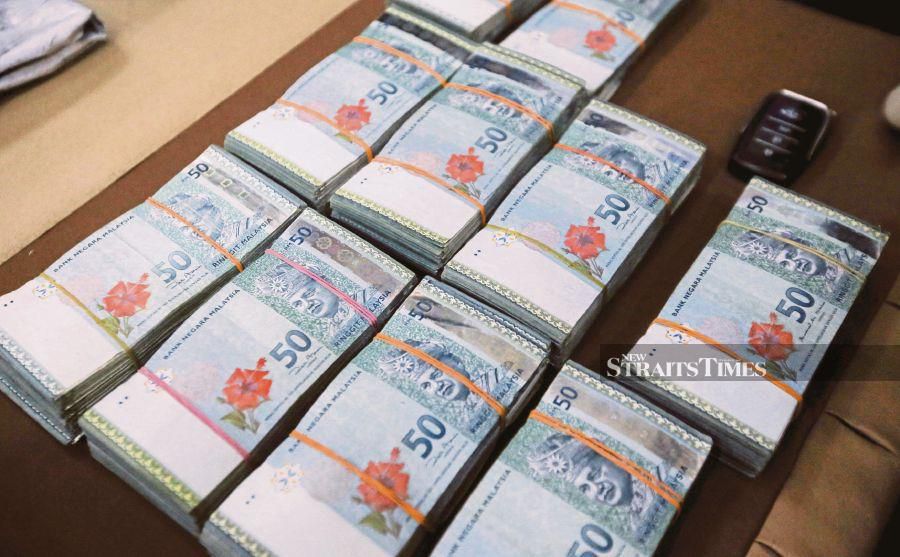
DUE to the numerous forms it can take, corruption escapes the idea of a comprehensive definition.
It knows no boundaries, applies to the rich and poor individuals, organisations and countries, and it is as old as human history itself.
Corruption can include bribery, unlawful gifts and donations, extortion, nepotism, buying influence, favouritism, fraud, embezzlement and the like.
They are all forbidden on the basis they seek to distort the course of justice.
Differences in interpretation of a particular hadith (words of Prophet Muhammad) on the validity or otherwise of the declaration of personal assets of government officials have recently been featured in the media.
In principle, syariah (Islamic law) accepts reasonable disagreement (iktilaf) in interpretation provided it is clear of bias and does not pursue questionable objectives.
One way to evaluate this is to refer to the higher purposes (maqasid) of syariah.
If an interpretation pursues a lawful purpose that finds support in the higher sources of syariah, it is accepted, but is set aside and rejected otherwise.
If asset declaration is meant to fight official corruption, then this is not only valid in syariah but highly recommended and meritorious.
Official corruption has undoubtedly become the bane of good governance in many present-day Muslim countries, Malaysia included.
Provided asset declaration itself is not motivated by a corrupt purpose, such as violating the privacy of others and conducting unwarranted searches to inflict harm on them, and it is intended only as a means of combating corruption, it is valid beyond doubt.
This is because all government employees have a duty to stay away from corruption.
For government in Islam is a trust (amanah) that must be faithfully observed (Quran Chapter 4, verse 58), and betrayal of trust is strictly forbidden (8:72).
The text also speaks in condemnation of corruption (fasad) and its perpetrators (mufsidun) (2:205; 26:151; 30:41).
Fighting official corruption also forms part of the Quranic principle of ‘prevention of evil’ (nahy ‘an al-munkar) which is a duty of the leader and those in charge of community affairs (uli’l-amr).
Iqbal and Lewis wrote in their (2002) work, The Islamic Attack on Corruption, that “there is zero tolerance for bribery in Islam, and Islam rejects any idea that bribery serves as ‘the grease that oils the economic wheels’.”
There is no scope either for legalising corruption in the name of commission, gift, donation, advances, soft loan, loan write-offs and the like.
Islamic history also records instances of anti-corruption measures taken by the government. The second caliph, Umar Al-Khattab, fought bribery and corruption of officials through expropriation of personal wealth accumulated during the tenure of office.
This was done to prominent figures among the Prophet’s companions, Abu Hurayrah, Amri Al-Aas, Nafi Amri, Saad Abi Waqas, and Khalid Al-Walid, the governors respectively of Bahrain, Egypt, Mecca, Kufa and Sham, among others, who were found to have accumulated wealth which they did not have prior to employment.
Some of them indulged in trading activities and careless handling of public funds.
The caliph ordered Abu Hurayrah to “take your own property and what is necessary for your living, and surrender the rest to the Baitul Mal (public treasury)”.
Amri Al-Aas was simply ordered to hand over one half of his wealth to the Baitul Mal as he had acquired goods, slaves, livestock and artifacts that he did not have before he was appointed as governor of Egypt.
Expropriation was not confined to government officials but also extended to merchants, contractors and dignitaries who conducted business with the government and accumulated disproportionate amounts of wealth.
An interesting incident on this, recorded by Abu Yusuf, involved the two sons of the caliph Umar, Abdul Allah and Ubayd Allah, who accompanied an army contingent to Iraq.
Governor Abu Musa Al-Asharı, said: “Here’s money as advance to buy goods from Iraq and then sell them in Madinah. Give the capital to the caliph and keep the profit for yourselves.”
This was agreed and the caliph’s sons made a profit. But when handing over the capital to the caliph, the latter asked:
“Does he give similar advances to everyone in the army?” The answer to this was “No”, and the caliph asked them to pay both the capital and the profit.
A man said: “O Umar, perhaps you could treat this as an instance of mudarabah on the analysis that if they had made a loss they would have been accountable.”
The caliph agreed and asked his sons to deliver the capital and only half the profit to the Baitul Mal.
Expropriation of assets of corrupt officials was eventually institutionalised under the Abbasid caliph, Ja‘far al-Mansur, when a department was established for handling expropriation matters in cases of unwarranted enrichment.
Reports also indicate that vast amounts of properties were retrieved.
The Abbasid caliph, al-Qahir, is thus reported to have expropriated the properties of the mother of his predecessor, al-Muqtadir, which raised the assets of Baitul Mal by a substantial amount.
The writer is founding CEO of International Institute of Advanced Islamic Studies (IAIS) Malaysia
https://www.nst.com.my/opinion/columnists/2019/07/507029/fighting-corruption-islamic-perspective
